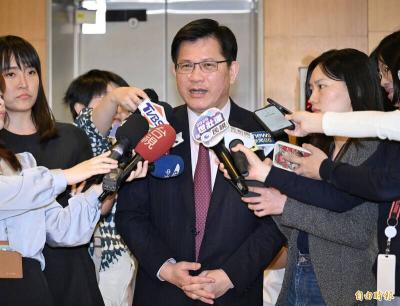Referendums should be used to obtain a mandate from the Taiwanese public for Taiwan and China to sign a cross-strait economic integration agreement, a former top cross-strait policymaker said yesterday.
Former Mainland Affairs Council (MAC) deputy chairman Tung Chen-yuan (童振源) said that as the government is determined to sign an economic cooperation framework agreement (ECFA) with China, it is duty-bound to engage in well-planned negotiations with China.
Tung, currently a professor at National Chengchi University’s Graduate Institute of Development Studies, said the Presidential Office should establish a committee chaired by President Ma Ying-jeou (馬英九) to formulate the country’s strategy of global economic integration. The committee should solicit opinions from opposition parties, experts and academics, as well as industry and labor representatives, he said.
Tung also proposed that the government prioritize signing a preferential trade agreement with Beijing under the General Agreement on Tariffs and Trade (GATT).
Calling on the government to include referendums in its effort to sign an ECFA with Beijing, he urged the Ma administration to continue negotiations on trade issues through dialog between the Straits Exchange Foundation and its Chinese counterpart, the Association for Relations Across the Taiwan Strait, to normalize economic relations and cooperation across the Taiwan Strait.
The proposed ECFA has flaws, Tung said, adding that the government’s economic strategy was unclear, its evaluation of the pact’s benefits incomplete, its communication with the public and the opposition insincere, and its ability at execution questionable.
In a bid to forge ahead with the proposed accord, Tung said the Ma administration must insist on principles that protect Taiwan’s sovereignty, consolidate political and public consensus, help industries adapt to economic challenges and upgrade their competitiveness and formulate a comprehensive global economic integration strategy.
Saying that Taiwan was a member of the WTO and APEC, which both have frameworks that ensure the freedom of international investment and trade, Tung added that formulating a comprehensive global economic integration strategy would be economically beneficial for Taiwan because China plays a less significant role under such an arrangement. The disadvantage, however, is that Taiwan has limited power to sway the direction and agenda of international negotiations on economic integration because it is not a strong player in international politics and economics, Tung said.

Taiwan would welcome the return of Honduras as a diplomatic ally if its next president decides to make such a move, Minister of Foreign Affairs Lin Chia-lung (林佳龍) said yesterday. “Of course, we would welcome Honduras if they want to restore diplomatic ties with Taiwan after their elections,” Lin said at a meeting of the legislature’s Foreign Affairs and National Defense Committee, when asked to comment on statements made by two of the three Honduran presidential candidates during the presidential campaign in the Central American country. Taiwan is paying close attention to the region as a whole in the wake of a

Chinese Nationalist Party (KMT) Chairman Eric Chu (朱立倫), spokeswoman Yang Chih-yu (楊智伃) and Legislator Hsieh Lung-chieh (謝龍介) would be summoned by police for questioning for leading an illegal assembly on Thursday evening last week, Minister of the Interior Liu Shyh-fang (劉世芳) said today. The three KMT officials led an assembly outside the Taipei City Prosecutors’ Office, a restricted area where public assembly is not allowed, protesting the questioning of several KMT staff and searches of KMT headquarters and offices in a recall petition forgery case. Chu, Yang and Hsieh are all suspected of contravening the Assembly and Parade Act (集會遊行法) by holding

President William Lai (賴清德) has appointed former vice president Chen Chien-jen (陳建仁) to attend the late Pope Francis’ funeral at the Vatican City on Saturday on his behalf, the Ministry of Foreign Affairs said today. The Holy See announced Francis’ funeral would take place on Saturday at 10am in St Peter’s Square. The ministry expressed condolences over Francis’ passing and said that Chen would represent Taiwan at the funeral and offer condolences in person. Taiwan and the Vatican have a long-standing and close diplomatic relationship, the ministry said. Both sides agreed to have Chen represent Taiwan at the funeral, given his Catholic identity and

Taiwan would welcome the return of Honduras as a diplomatic ally if the next president of that country decides to make such a move, Minister of Foreign Affairs Lin Chia-lung (林佳龍) said today. “We would welcome Honduras if they want to restore diplomatic ties with Taiwan after their elections,” Lin said during a legislative hearing. At the same time, Taiwan is paying close attention to the Central American region as a whole, in the wake of a visit there earlier this year by US Secretary of State Marco Rubio, Lin said. Rubio visited Panama, El Salvador, Costa Rica and Guatemala, during which he